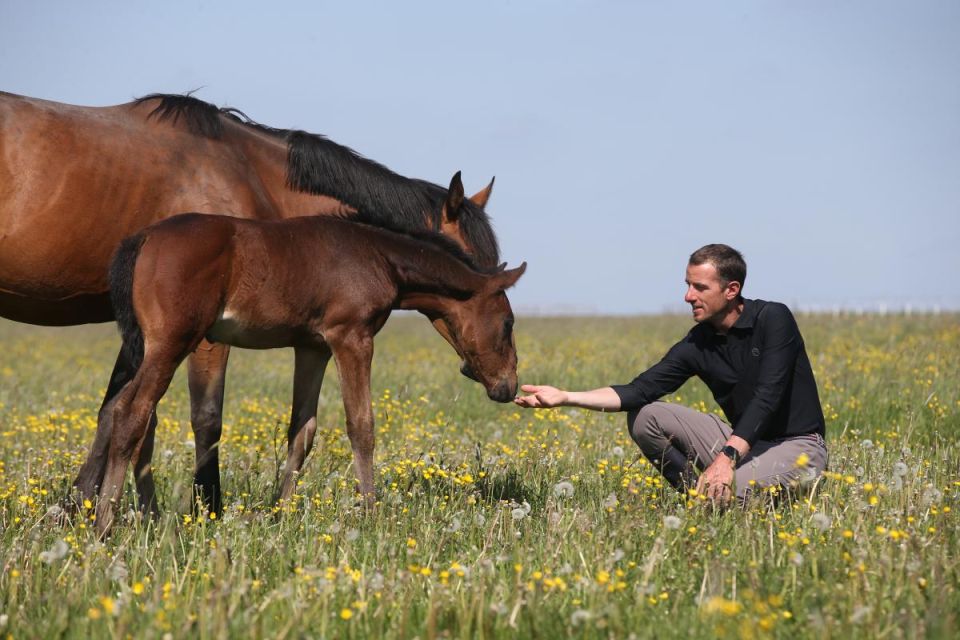17 September '20
The breeder in Grégory Wathelet: 'Do you know what's so great about breeding? The unpredictability'
/
Breeders Portrait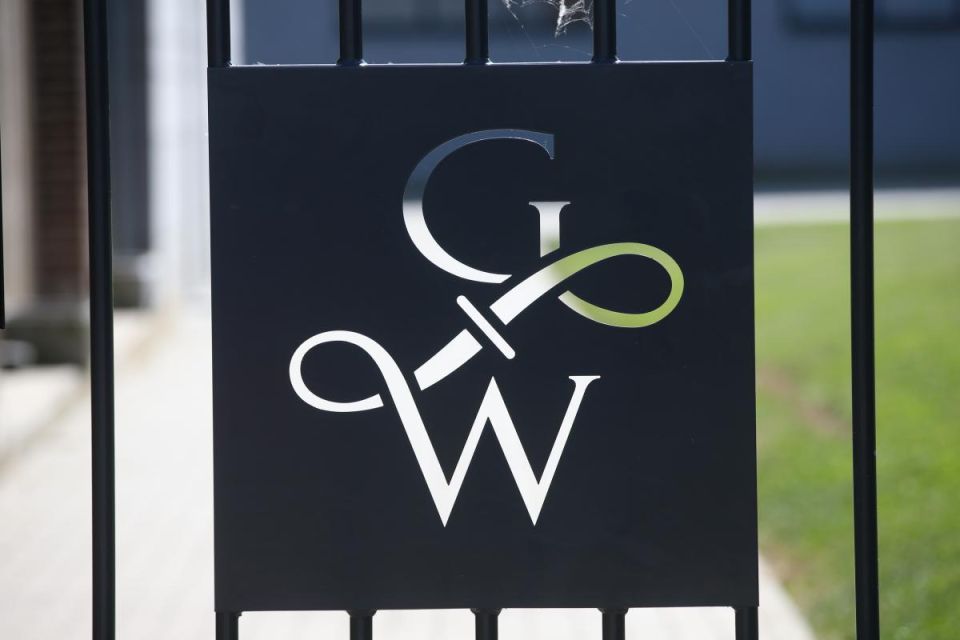
Zangersheide
Life can take surprising turns. Until a few years ago, Grégory Wathelet (39) was not breeding at all. “As a rider, I looked at a horse, not at its paper,” says Grégory. He is reigning European team champion, became vice European champion, won the GP of Aachen and so much more. Now all the puzzle pieces fit together. Wathelet bought the farm with breeding, which is characterized by the suffix 'de la Marchette', from his father. Last year, his seven-year-old Argentina de la Marchette even became Belgian champion. At the same time, Grégory had top stallions in the sport and top sport mares that were retiring. It intrigued him to such an extent that his interest in breeding grew. His breeding is a fact and yet Wathelet is above all a realist: 'I dream, hope and expect, although it may just as well be that in a few years I will wake up with a hangover'. The genes with which he breeds have already proven themselves in the sport.
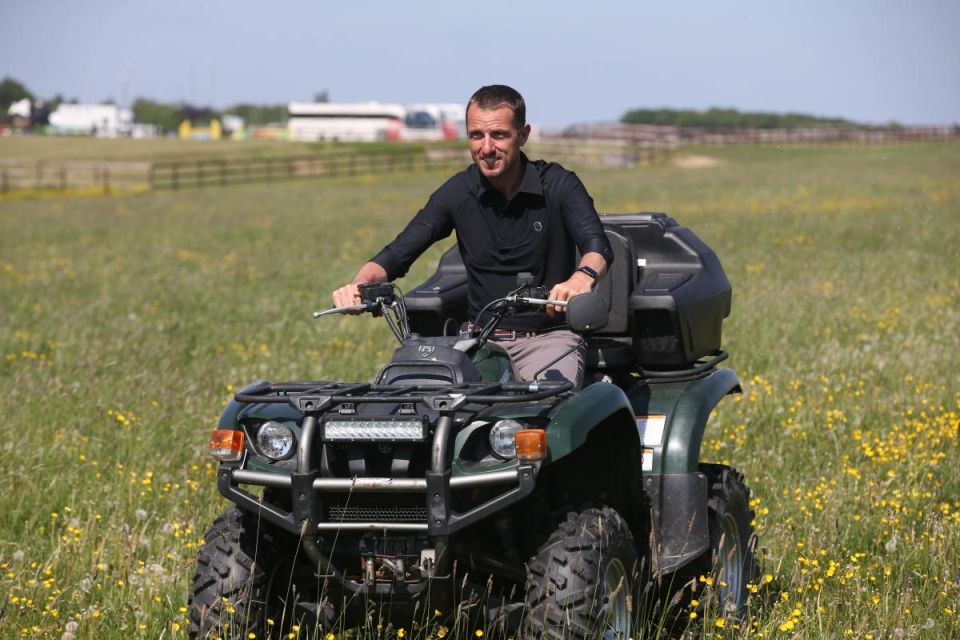
You obviously boosted the breeding of 'Marchette'?
I expect 15 foals this year! The majority of which are born at home. That used to be different. I bought foals and embryos and shared the breeding with some friends. It's a combination of circumstances. My father already had a breeding farm. Last year I became Belgian champion in Gesves with his seven-year-old Argentina de la Marchette (Acajou de la Marchette – Del Piero P&B). Five years ago I took over the parental farm and reformed it into a sports stable and breeding farm. And adopted means everything. My father, who has reached retirement age, was a farmer and primarily raised cattle of the Limousin breed. So I don't only breed horses, but also cows (laughs). He had about 130 a year, I reduced that to about 30. I like that, it's sympathetic, but let's just say my interest is more in the horses.
Has Argentina De La Marchette's success convinced you to breed?
My father still has that line and some great horses have already emerged from it. Let's say I want to continue in breeding what my father started. My father was a professional breeder of cows, horses were a hobby. My intention is to give horse breeding a boost, because I now have a few mares that have performed in top sport.
Did they make the difference?
To be honest, until a few years ago breeding did not interest me at all. I wasn't into that. When I bought horses or were offered them by owners, I looked at the horse, not the paper. I didn't know the origin, so to speak. Everyone has their job, there are riders and there are breeders, which are two separate professions and specializations.
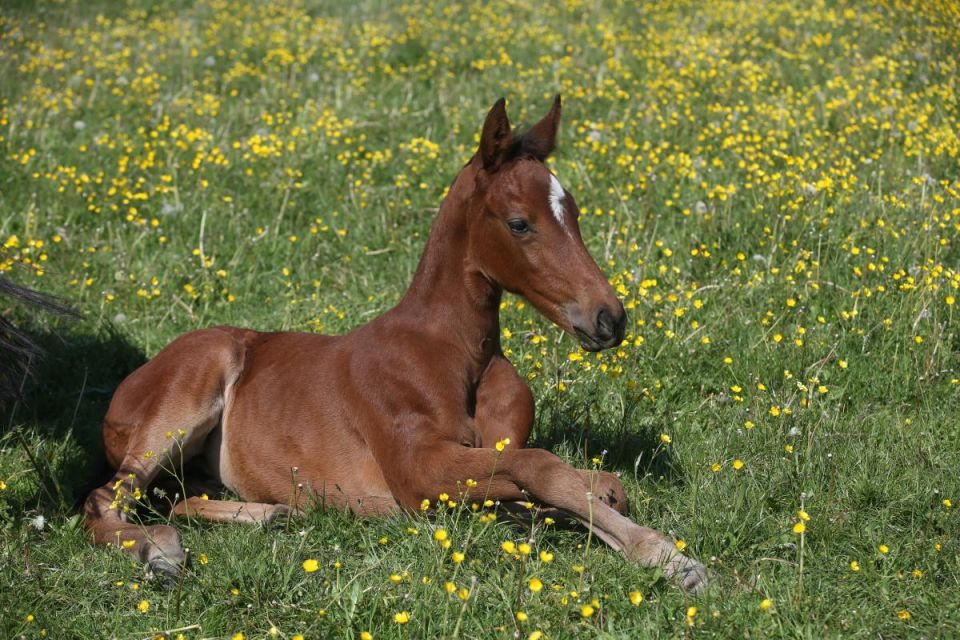
BRUME DE LA MARCHETTE Z
The fact is that everything I do in my life, I want to do well for more than one hundred percent. That's how I'm put together. If I go for something, it is with total surrender and even more commitment. Whether as a rider or trainer, or as a breeder, I will always get the most out of it. I'm doing it right or I'm not doing it. Which doesn't mean that everything always works out, but I will never be able to blame myself for not doing everything for it. When I was 18 I wanted to become a professional rider, that was my ambition and I went for it. Even though I am a simple farmer's son and they did not have the means at home to invest in their son's sporting career. I've always worked very hard to achieve my goal and I wouldn't want to and couldn't do it any other way. It's who I am. And now I want to do the same with breeding. I bought the parental farm, surrounded by 70 hectares of pasture and a modest breeding farm. The foundation had been laid. In addition, I had retired GP mares at my disposal. That got me thinking. The oldest horses in my breeding are four years old, out of Lilly Lordanos, who went into breeding due to a sports injury. We also use Cavaluna Z (Crown Z) in breeding. She has a four-year-old Comme Il Faut. The 18-year-old Oh D'Eole (Kannan) gave birth to three foals this year. I have a foal by Banda de Hus (Argentinus), by Coree (Cornet Obolensky), who won the Aachen GP. They are all mares that have competed in the big sport. I am lucky to have ridden many good mares from multiple owners. Owners who all have a passion for the sport and now share my passion for breeding. Maybe that was a logical next step? I got a mare, built a sport career with it and then the idea followed to use her in breeding. Or we once bought a foal from those certain lines together. Together with a few owners, I bought the brother of MJT Nevados, who became world champion in Zangersheide as a seven-year-old and won team gold at the European Championships in Rotterdam last year. We also bought a brother and sister from Conrad de Hus, with whom I became vice European champion in Aachen. The foals we now invest in and the mares I now breed with all have a link with my sport career and that is the basis of my breeding. There are breeders who know much more about bloodlines than I do, I only base myself on fathers and mothers that I have ridden myself or on their immediate family. Because I know it best.
It's about sentiment?
Absolutely! Coree won the Grand Prix in Aachen, Conrad de Hus won silver at the European Championships in Aachen. Who wouldn't want a foal from that combination? And of course such a foal has enormous sentimental value. That in combination with owners who share the same sentiment. That is the beauty of our breeding and implies that there is no pressure whatsoever. Breeding is a shared passion that makes us hope and dream. And we are realistic about that, maybe in three or four years we will wake up with a hangover because we find that it is actually disappointing? Or the dream will not come true. But in the meantime, that hope and expectation does give you a good feeling (smiles). Fortunately, I am also well surrounded by professionals who have much more knowledge and understanding than I do. For example, I ask a lot of advice from my good friend Gilles Botton from Haras de Hus.
Then I realize that breeding will always be a lottery. And I say that as a rider and not as a breeder. As a rider, I want horses for the five-star competition. How many, or rather, how few foals is that for? It's better that you don't make that probability calculation. Breeding has become a passion and that's the most important thing. Another decisive factor is that I have had many six- and seven-year-olds under the saddle in my career and I have succeeded in bringing them to the highest level. At that age of six or seven years, you can already make a realistic assessment and I have often wondered how those horses jumped as three and four years old. I didn't know because I didn't know them at that age. If you have a topper under the saddle, you often hear people say that they saw it at a very young age. That intrigued me. And especially the question: is that possible?
Can you say it?
I'm working on it. I intend to keep my breeding horses long enough to find out. Both the good and the doubters. Because I want to establish that evolution: how does a two-year-old jump into freedom? How is he doing as a three year old? As a four and five year old? I want to see if you can draw a line in that. I record everything on video and every foal has its own video file. My first observation is that the first jumps in freedom already give an important indication for their later jumps under the saddle. I have seen the two-year-olds working in peace and quiet several times. Twice in the beginning
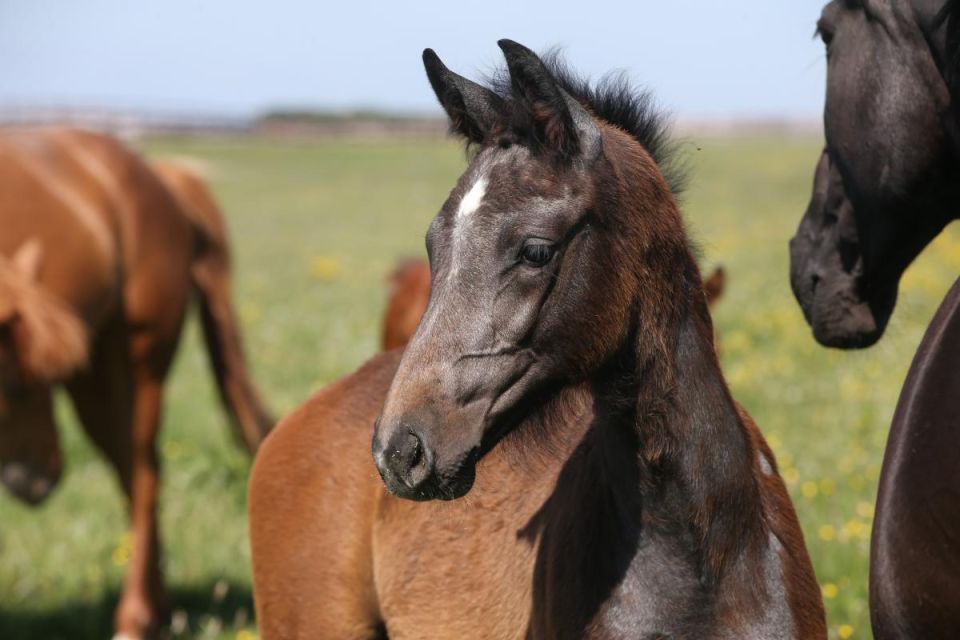
CHARMEUR DE LA MARCHETTE Z
Coincidence and luck play a major role?
Always. Although everything starts with intrinsic quality. The foal must have the talent and then there are many factors that play a role. And those real top horses that you see on TV every week, or should I say saw on TV, are exceptions. From my stable I think of Coree, Conrad, Forlap, Cortez. They are exceptional in every way. These are innate geniuses and they are rare, just like in humanity. As a breeder you should not be blinded by this. That certainly applies to me. Of course I want to breed horses to win Aachen, but now I'm dreaming out loud. If you succeed in breeding a two-star GP horse, you are already doing well. Because those are good horses too. There are many good footballers, there is only one Ronaldo, one Messi. If you mirror that as a football player, you will be left frustrated.
What do you deduce from a newborn foal?
Nothing, nothing at all. I know too little about it for that. I say what everyone says: oh, what a beautiful foal (laughs). I have many foals together with Gilles Botton and he can make an anatomical analysis of a foal quite quickly. I don't at all. What I have learned is that there are experts and those who think they know. To be clear, I have no knowledge of it. I won't judge until I see them jump free. And even then I don't look at their model, but at their technique. Well, as I said, I have committed myself to breeding and share it with passionate and professional people. It is an entertainment and an experiment. And for the time being that costs a lot of money. My breeding is currently loss-making. From a purely economic point of view, it is better to buy a three-year-old.
Do you agree?
I am my own manager and do my own bookkeeping and quickly arrive at an average of € 10,000 per foal (including embryo transfer).
That's a lot?
I think breeders, fortunately, don't charge all the costs. For stud fees I charge between 1,000 and 3,000€. There is the depreciation of your mare. Flushing an embryo costs €3,000. Suppose one out of two transplants succeeds. Then you have the surrogate mother who costs an average of € 1,500 per year. Add to that the numerous trips, the employee who has to be paid. The natural loss of a foal or a two-year-old that produces bad photos. If you really charge all costs, you effectively arrive at an average cost of € 10,000. What do you do best? Buy the very best four-year-old for €100,000 or breed 10 foals for €10,000? No, you don't breed for the money. Well, I don't want to scare anyone. Because I now also understand the passion of the breeder. I admit it, when I became Belgian champion last year with Argentina from my father's breeding, it was something special. And that feeling does not outweigh the cost. That's a pride you can't buy. That's like a rider winning Aachen, there is no price for that indescribable feeling. Another factor in my breeding story is that I will be 40 in September. I don't feel old, but wouldn't it be nice if I could end my career in about 10 years with a horse that I bred myself? That's a dream, although I'm mostly a realist. I will be happy if I ever breed one horse that jumps at level.
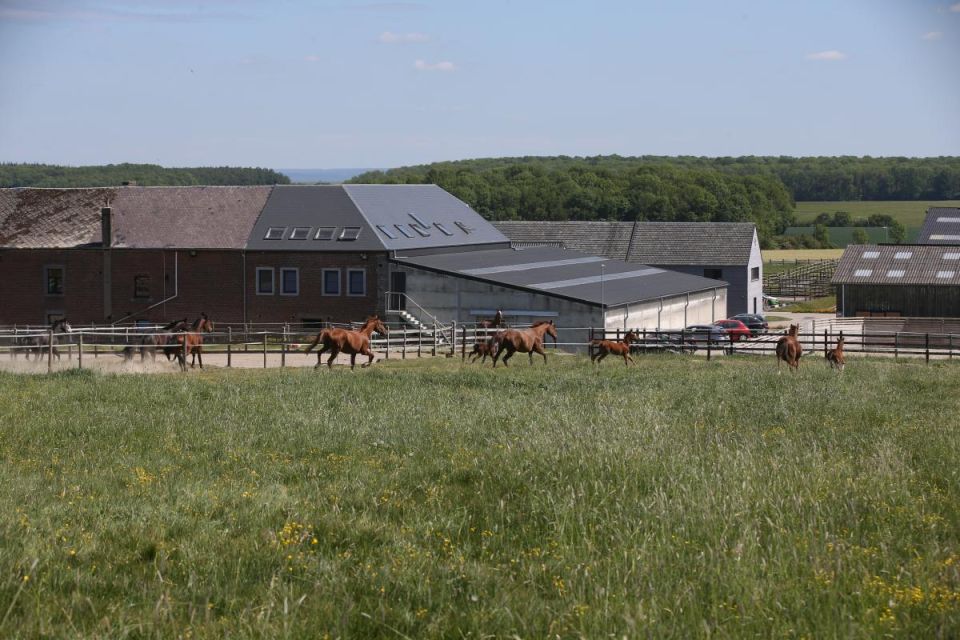
Many breeders are grateful to Z for the Z Quality Auction, Z Online Auctions and Z Breeders Auction. Is that something for you to recover costs?
We have already bought more than sold at the Z auction. We have offered two at auction, although I usually keep them until they are at least three years old. From an economic point of view, I should sell more foals, although I am not a sales person enough for that. It's not because I can make a profit of € 10,000 on a foal tomorrow that I'm selling it. That dream hey (smiles). And maybe that's a bit crazy and I'll change my mind in a few years. It's like in sports, you don't do it for the money. You need income, but you don't do sport and breeding for financial reasons. We have already received very attractive offers for Argentina de la Marchette, but she is not going away, never. She is in our hearts.
I am also not selling because I still want to learn a lot. If I sell all my foals, I will never know how they will evolve and that is precisely what interests me in breeding now. I want to better understand that development from a young horse. That's really exciting. With Coree, for example, I had my doubts when I tried them. She was complicated. If I get to know such a horse now as a four- and five-year-old, I might also be able to assess them better? I didn't think Silvana would become this good either.
Nevados became world champion as a seven-year-old and won team gold at the European Championships last year. At first I doubted whether he would jump 1.45m. Because he's so sensitive. He could, but the circumstances had to be right. Was he going to do it in the ring next? I handled it very carefully. Until some top horses could not be used due to injuries and Nevados had to pull the cart. He made the click and jumped like at home. I still remember our game in Sankt Gallen where he really convinced me. Just to say that there are so many unknown factors that play a role in a horse's success.
What does their training look like?
As a two-year-old they come in for ten days and they jump into freedom four times. Without judging. We will repeat this again at the end of the year and then a first selection will be made. Who survives the winter and who gets to leave? As a three-year-old they are broken into the saddle and go to pasture in the spring. Their education really starts at the age of four. Or at home or at third parties. Usually I don't have time for that. Now exceptionally something more. Although I will now be more concerned with the horses from my own breeding. I really want to feel them for a long time. I'm going to like that and who knows it will be my second career?
What does the rider Wathelet tell the breeder Wathelet when it comes to a dream combination?
That he should go for Coree x Conrad de Hus, because I rode them both. And Coree x Sandro Boy, because both horses belong to the same owner. We are now expecting a foal from Casall out of Coree and have flushed an embryo from Nevados.
From our Belgian champion Argentina we expect an embryo foal by Comme Il Faut. We also crossed Coree with Dominator 2000 Z. I've wanted Taloubet Z for a long time, we tried, but it didn't work out yet. I usually make a list of stallions that I know from the sport. Dominator Z and Taloubet Z stand out. I follow my heart in doing so. I have stallions in the sport myself and sometimes breeders ask for advice: my mare is such and such, which stallion should I use? How can I know? I really can't give any sensible advice on that. Aren't those combinations always sentimental?
